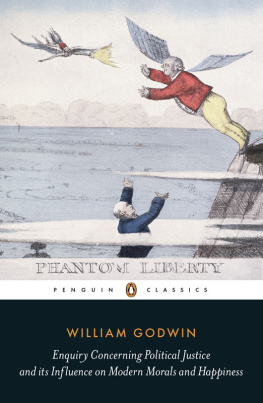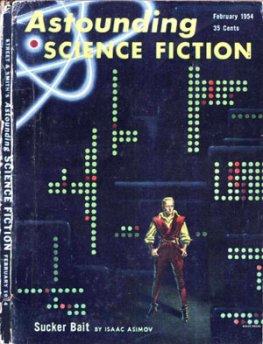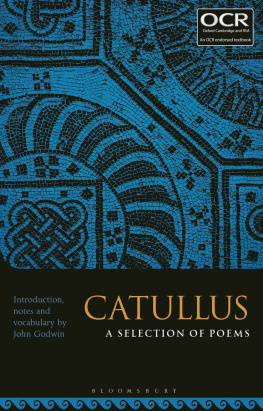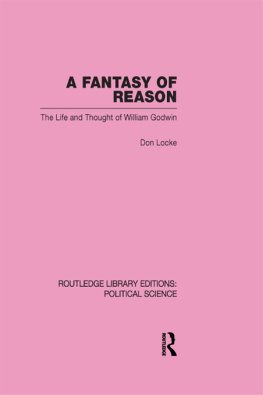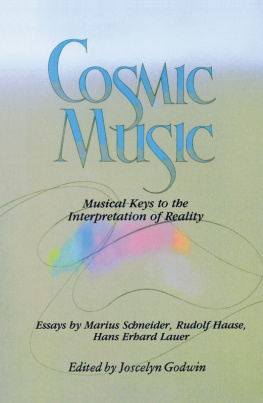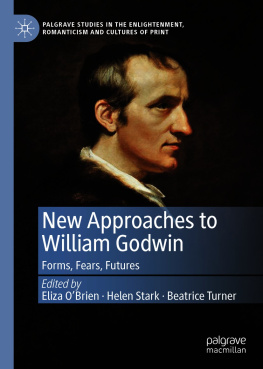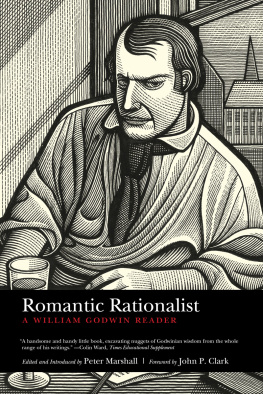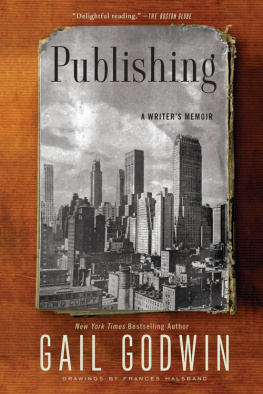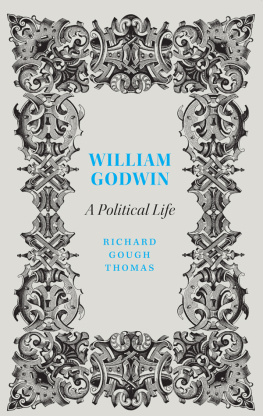William Godwin - Enquiry Concerning Political Justice
Here you can read online William Godwin - Enquiry Concerning Political Justice full text of the book (entire story) in english for free. Download pdf and epub, get meaning, cover and reviews about this ebook. year: 2015, publisher: Penguin Books Ltd, genre: Science. Description of the work, (preface) as well as reviews are available. Best literature library LitArk.com created for fans of good reading and offers a wide selection of genres:
Romance novel
Science fiction
Adventure
Detective
Science
History
Home and family
Prose
Art
Politics
Computer
Non-fiction
Religion
Business
Children
Humor
Choose a favorite category and find really read worthwhile books. Enjoy immersion in the world of imagination, feel the emotions of the characters or learn something new for yourself, make an fascinating discovery.
- Book:Enquiry Concerning Political Justice
- Author:
- Publisher:Penguin Books Ltd
- Genre:
- Year:2015
- Rating:5 / 5
- Favourites:Add to favourites
- Your mark:
- 100
- 1
- 2
- 3
- 4
- 5
Enquiry Concerning Political Justice: summary, description and annotation
We offer to read an annotation, description, summary or preface (depends on what the author of the book "Enquiry Concerning Political Justice" wrote himself). If you haven't found the necessary information about the book — write in the comments, we will try to find it.
Enquiry Concerning Political Justice — read online for free the complete book (whole text) full work
Below is the text of the book, divided by pages. System saving the place of the last page read, allows you to conveniently read the book "Enquiry Concerning Political Justice" online for free, without having to search again every time where you left off. Put a bookmark, and you can go to the page where you finished reading at any time.
Font size:
Interval:
Bookmark:
PENGUIN BOOKS
WILLIAM GODWIN, the famousphilosopher and novelist, was born in East Anglia in 1756. The son of a Presbyterian minister, hewas himself educated at Hoxton Academy for that calling. However, after five years he left theministry, having lost his faith in God. He then devoted his time to writing. In 1797 he marriedMary Wollstonecraft, and in 1801 he married Mrs Clairmont. He became a firm believer in thedoctrine of enlightenment and has been described as a kind of Puritanical anarchist. Hepublished a great deal of journalism and historical writing but is now mainly remembered for hisphilosophical work, Enquiry Concerning Political Justice (1793), and one of the earliestpropaganda novels, Caleb Williams, or Things as They Are (1794).
ISAAC KRAMNICK was educated atHarvard University and Peterhouse, Cambridge. A Professor of Government and Political Theory atCornell University in Ithaca, New York since 1972, he is married to Miriam Brody, editor of thePenguin Classics edition of Mary Wollstonecrafts The Vindication of the Rights ofWoman. Among his publications are Bolingbroke and His Circle, The Rage ofEdmund Burke, Republicanism and Bourgeois Radicalism: Political Ideology in LateEighteenth-Century England and America, Harold Laski: A Life on the Left and,co-authored with R. Laurence Moore, The Godless Constitution: A Moral Defense of the SecularState.
Caleb Williams (London,1794).
The Enquirer: Reflections onEducation, Manners and Literature (London, 1797).
Fleetwood (London, 1805).
Of Population (London, 1820).
Thoughts on Man (London,1831).
C. Kegan Paul, William Godwin: HisFriends and Contemporaries (London, 1876).
H. N. Brailsford, Shelley, Godwin, andTheir Circle (OUP, London, 1951).
F. K. Brown, The Life of WilliamGodwin (London, 1926).
C. B. Cone, The English Jacobins(Scribner, New York, 1968).
D. Fleisher, William Godwin: A Studyin Liberalism (Allen & Unwin, London, 1951).
R. G. Grylls, William Godwin and HisWorld (Odhams Press, London, 1953).
E. Halvy, The Growth of PhilosophicalRadicalism (Faber, London, 1928).
I. Kramnick, On Anarchism and the RealWorld: William Godwin and Radical England, American Political Science Review, Vol.LXVI, No. 1, March 1972.
A. H. Lincoln, Some Political andSocial Ideas of English Dissent 17631800 (Cambridge University Press, 1938).
D. H. Monro, Godwins MoralPhilosophy (OUP, London, 1953).
B. R. Pollin, Education andEnlightenment in the Works of William Godwin (Las Americas, New York, 1962).
F. E. L. Priestley, CriticalIntroduction and Notes to Enquiry Concerning Political Justice (Toronto, 1946).
E. P. Thompson,The Making of the English Working Class (Penguin Books, Harmondsworth, 1968).
G. Woodcock, William Godwin, ABiographical Study (Porcupine Press, London, 1946).

Subject of enquiry of the first book. Received ideas of political institution. Propriety of these ideas questioned. Plan of the first book.
The object proposed in the following work is aninvestigation concerning that form of public or political society, that system of intercourseand reciprocal action, extending beyond the bounds of a single family, which shall be found mostto conduce to the general benefit. How may the peculiar and independent operation of eachindividual in the social state most effectually be preserved? How may the security each manought to possess, as to his life, and the employment of his faculties according to the dictatesof his own understanding, be most certainly defended from invasion? How may the individuals ofthe human species be made to contribute most substantially to the general improvement andhappiness? The enquiry here undertaken has for its object to facilitate the solution of theseinteresting questions.
In entering upon this investigation nothing canbe more useful than to examine into the extent of the influence that is to be ascribed topolitical institutions; in other words, into the powers of man, as they have modified, or mayhereafter modify his social state of existence. Upon this subject there has been considerabledifference of opinion.
The most usually received hypothesis is thatwhich considers the effects of government or social institutions, whether acting by expressregulations or otherwise, as rather of a negative than positive nature. No doubt the purposesfor which government was established are in their strictest sense negative; to maintain us inthe possession of certain advantages against the occasional hostility either of domestic orforeign invaders. But does the influence of government stop at the point forthe sake of which mankind were first prevailed on to adopt it?
Those who believe that it does or can stop atthis point necessarily regard it as a matter of subordinate disquisition, or at most onlyco-ordinate with several others. They survey man in his individual character, in his domesticconnections, and in the pursuits and attachments which his feelings may incline him to adopt.These of course fill the principal part of the picture. These are supposed, by the speculatorsof whom we now speak, to be in ordinary cases independent of all political systems andestablishments. It is only in peculiar emergencies and matters that depart from the accustomedroutine of affairs that they conceive a private individual to have any occasion to remember, orto be in the least affected by the government of his country. If he commit or is supposed tocommit any offence against the general welfare, if he find himself called upon to repress theoffence of another, or if any danger from foreign hostility threaten the community in which heresides, in these cases and these only is he obliged to recollect that he has a country. Theseconsiderations impose upon him the further duty of consulting, even when no immediate danger isnigh, how political liberty may best be maintained, and mal-administration prevented.
Many of the best patriots and most popularwriters on the subject of government appear to have proceeded upon the principles heredelineated. They have treated morality and personal happiness as one science, and politics as adifferent one. But, while they have considered the virtues and pleasures of mankind asessentially independent of civil policy, they have justly remarked that the security with whichthe one can be exercised and the other enjoyed will be decided by the wisdom of our publicinstitutions and the equity with which they are administered; and have earnestly pressed it uponthe attention of mankind not to forget, in the rectitude or happiness of the present moment,those precautions and that generous plan of power
But, while we confessourselves indebted to the labours of these writers, and perhaps still more to the intrepidlanguage and behaviour of these patriots, we are incited to enquire whether the topic whichengaged their attention be not of higher and more extensive importance than they suspected.Perhaps government is not merely in some cases the defender, and in other the treacherous foe ofthe domestic virtues. Perhaps it insinuates itself into our personal dispositions, andinsensibly communicates its own spirit to our private transactions. Were not the inhabitants ofancient Greece and Rome indebted in some degree to their political liberties for theirexcellence in art, and the illustrious theatre they occupy in the moral history of mankind? Arenot the governments of modern Europe accountable for the slowness and inconstancy of itsliterary efforts, and the unworthy selfishness that characterizes its inhabitants? Is it notowing to the governments of the East that that part of the world can scarcely be said to havemade any progress in intellect or science?
Font size:
Interval:
Bookmark:
Similar books «Enquiry Concerning Political Justice»
Look at similar books to Enquiry Concerning Political Justice. We have selected literature similar in name and meaning in the hope of providing readers with more options to find new, interesting, not yet read works.
Discussion, reviews of the book Enquiry Concerning Political Justice and just readers' own opinions. Leave your comments, write what you think about the work, its meaning or the main characters. Specify what exactly you liked and what you didn't like, and why you think so.

